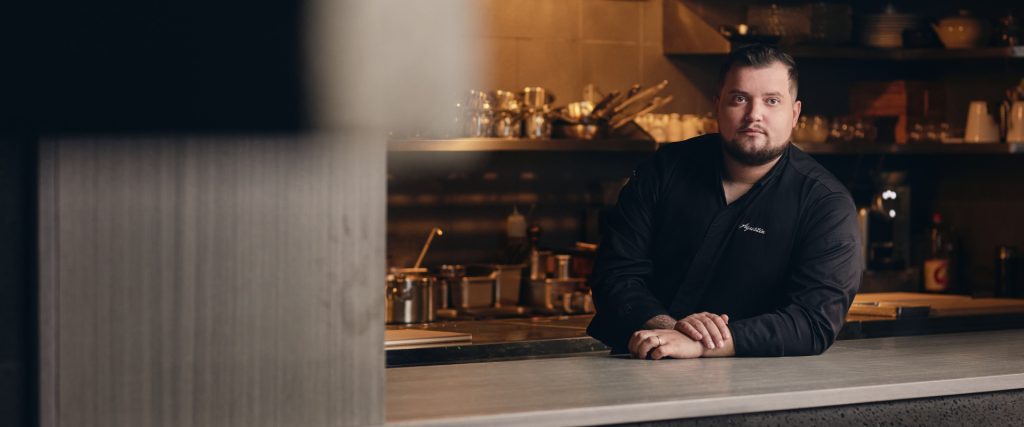In contrast to many of his peers, who tended to choose to round out their culinary training in Europe, Agustín Balbi decided to go much further: he travelled to Japan. He didn’t have any contacts or speak Japanese but that didn’t hinder his passion to learn about the world and eventually become a Michelin-starred chef.
He soon found work at three different restaurants in Tokyo; Zurriola (2 MICHELIN stars), Nihonryori Ryugin (3 MICHELIN stars) and Michel Troisgros’s Cuisines (2 MICHELIN stars), among others.
Since then, Agustín Balbi hasn’t stopped winning awards and honors: in 2015 he was named one of the ten best chefs in Japan under the age of thirty. In 2016, he moved to Hong Kong where he ran the HAKU Japanese restaurant (which came 58th in OAD’s top 100 Asian restaurants and was named one of the 20 best restaurants in Hong Kong and Macao for two consecutive years by Hong Kong Tatler).
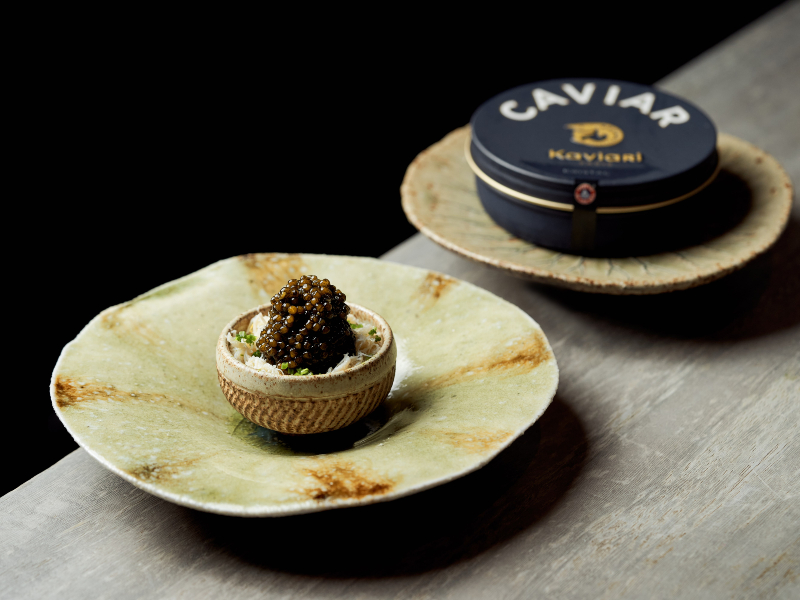
He was also honored as the Best Young Talent 2019 by La Liste and debuted 87th in the 2019 list of the Best Chefs in the World. In 2021, he came 55th at the 100 Best Chef Awards in Amsterdam.
In 2020, Agustín Balbi opened Andō, his first solo venture, a personal omakase that is now in the running for a third consecutive MICHELIN star (he won the first just six months after opening).
Agustín Balbi = innovation and creativity
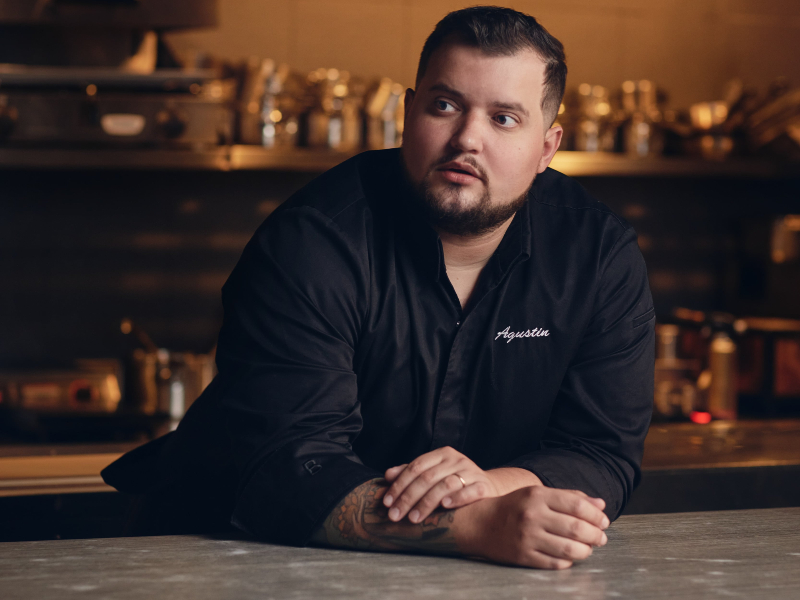
“At Andō, innovation is the search for a distinctive personal style: I take my experiences and memories to an exceptional professional level. I make dishes inspired by my grandmother’s creations but elevated to haute cuisine. But flavor is always my main focus. Technique and presentation come later, but a dish must first and foremost be delicious.
“I don’t adhere to strict traditions, I just use different techniques to tell my story. My cooking is free, with no cultural frontiers or rigid rules. Every dish, in addition to being packed with flavor, has an emotional meaning, its own style, although of course all cooking originates in memories.”
Of Japan’s firmly established gastronomic traditions, Agustín Balbi most values the Omotenashi work ethic, the Japanese code of service, in which a focus on the details, showing gratitude to diners and being attentive to their needs are some of the most important tenets.
A Michelin star, sustainability and commitment
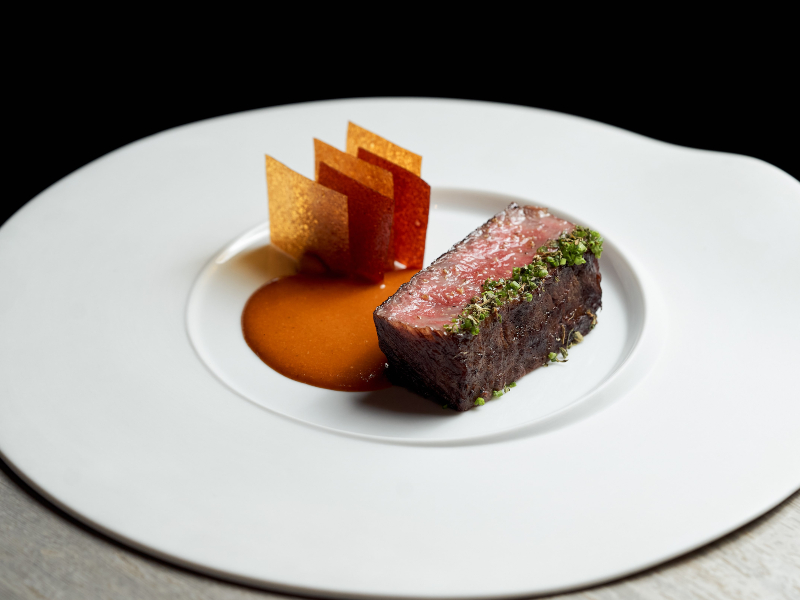
His restaurant has placed a premium on sustainability and care for the environment from day one: “Many people use terms like sustainability as marketing tools but I think that restaurants should be transparent and build a relationship of trust with their customers. At Andō, we don’t just prioritize sustainable products, but also human sustainability. We’ve implemented changes to working hours to ensure a fairer work-life balance and donate 1% of sales to an organization that provides help to the homeless. It’s a small contribution but if every restaurant were to follow our lead it would make a difference.”
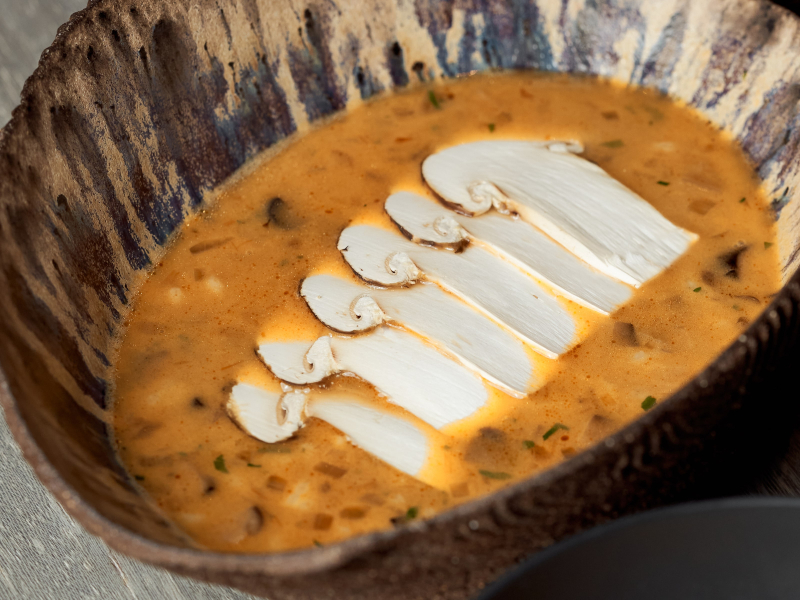
Regarding the recent arrival of the MICHELIN guide in Argentina, he says, “It’s a significant achievement. I think it will elevate the standards of regional cooking, improving not just chefs but also service, suppliers and product quality. Argentina is now on the world gastronomic map, which is valuable for several reasons, including food tourism. I think that everything that happens in association with the MICHELIN Guide is a good thing. I don’t see it as pressure, but passion, as I’ve wanted to be a Michelin starred chef since I left Argentina.”

